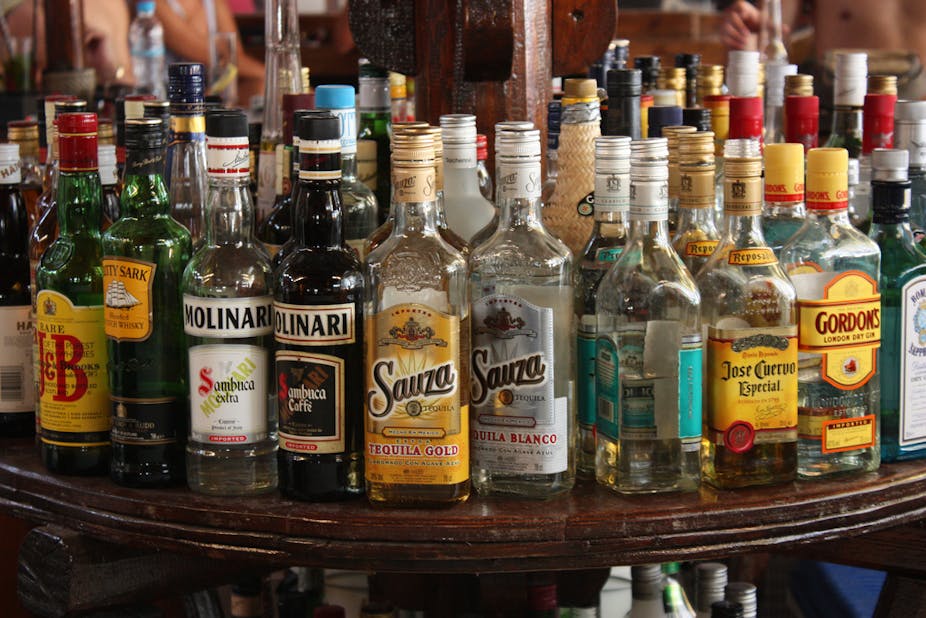Despite known risks of drinking, health and safety warning labels have been noticeably absent from alcoholic beverages in Australia.
But that might be about to change, with the Government today seeking feedback from consumer groups on the recommendations of the Review of Food Labelling Law and Policy.
The independent review chaired by Dr Neal Blewett released its report – Labelling Logic – on January 28, 2011. It contains 61 recommendations, four of which pertain to warning labels on alcoholic drinks.
Professor of Population Health & Chair of Social Research in Alcohol, Robin Room answers some questions about why we need warning labels on alcoholic beverages and what form they should take.
Why label at all?
Alcohol is a very dirty drug because it affects a lot of different organs of the body.
The majority of Australians have a general idea that it’s not too good for the liver to drink a lot but what most don’t know is that alcohol is implicated in a number of cancers.
The International Agency for Research on Cancer declared some time ago that alcohol is a human carcinogen and has reiterated the warning in a recent report.
People generally have an idea that it’s not a good idea to drive a car when you’ve been drinking but again, most don’t know that a substantial proportion of people who die in drowning accidents have had quite a bit to drink.
That message is on one of the warning labels in Sweden – half of all the Swedes who drown are drunk when they do so.
Warning labels are a good step but they’re not a whole policy, they’re a piece of what needs to be done about alcohol policy in Australia.

What is the local context for alcohol labelling?
In Australia, as in many other countries, alcohol is not labelled in the same way that food is. So it’s exempt from the usual requirements for anything else you take into your body, which are required to have labels listing all ingredients and composition from a nutritional viewpoint.
That’s a peculiarity that has come out of history but it doesn’t make sense because you are taking in calories or kilojoules into your body when you drink.
In recent weeks, DrinkWise, which is an industry-funded social aspects organization, has come out with voluntary standards on labelling, which they hope 80% of the industry will follow.
And yesterday the Alcohol Education and Rehabilitation Foundation (AERF) released a report calling for a Government-imposed health warning label system. Their proposed label is much more detailed and much more rigorous than what is currently being implemented by the industry under the DrinkWise initiative.
The AERF recommends rotating five warning labels because one of the problems with warning labels is that you get very used to it after a while – as you do with anything else you see every day – and you don’t notice them.
If you change the message periodically and if there are a variety of messages being displayed, then people are much more likely to notice them and go on noticing them.
The main precedents for this kind of labelling is on cigarette packaging but there is another example for alcohol warning labels in Sweden. Every advertisement for alcohol in Swedish newspapers has to dedicate an eighth of its area to a health message. And there are 11 warning messages to choose from, put forward by the Swedish public health institute.

What kind of labels are effective?
The best practice is firstly to have warning labels, to make them quite specific about particular health impacts to worry about and avoid, to have a variety of different messages in rotation and ensure they are in legible type and big enough to read.
The evidence we have is primarily from the American warning labels, which don’t fit several of the criteria.
But we know people noticed the labels and that they noticed them more when they were new than they do now. And the studies show a large number of people can remember what the warning label says.
Naturally, regular drinkers see the labels more regularly, which is not a bad thing. If you’re drinking in a pub, you tend not to see the labels but then most people who drink quite a lot drink out of a can or a bottle.
We know some conversations were started by the warning labels in the United States but beyond that there really isn’t much evidence on the actual effect on behaviour.
So we’re operating on the general idea that this is a good thing to do and it’s a step in the right direction.
If we do it better than the American effort then there’s a good chance it’ll have some effects on behaviour. But the best evidence of warning labels having an actual effect on behaviour is again from cigarettes rather than from alcohol.

What kind of labels do other countries have?
Alcohol labelling as an idea has been around for quite a while. The United States has had warning labels on alcoholic drinks now for about 20 years. It resulted from a push in the US Congress for about ten years.
They have a single warning label and the rules on how it has to be displayed aren’t very restrictive, so often it’s sideways or small print or unreadable type or in white on gold. And there’s quite a lot of information on it.
The labels in the United States warn against drinking during pregnancy, driving cars or operating machinery while drinking, all at the same time. It tries to wrap everything up into a single label.
A number of other countries also have labels but often they’re very general in what they say, such as drinking can be harmful to your health, and its left at that.
Should alcohol contain warning labels? What form should they take? Have your say below

